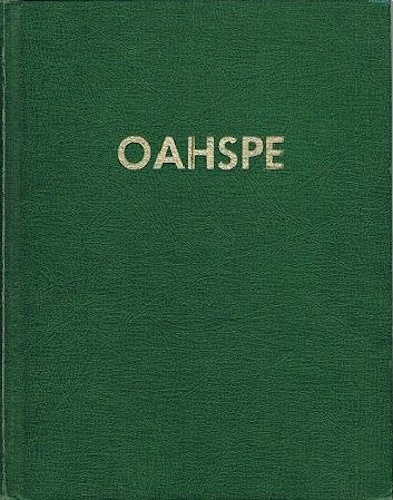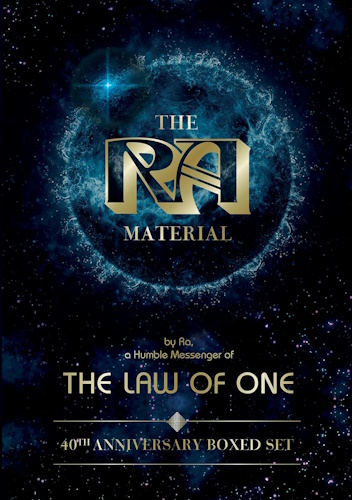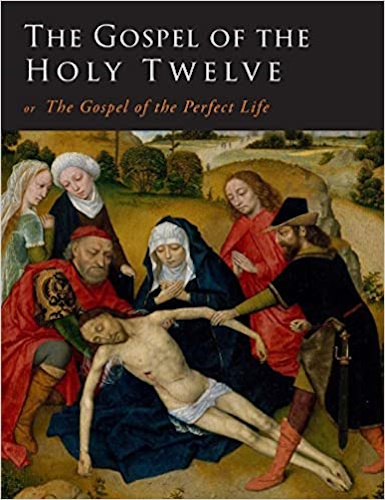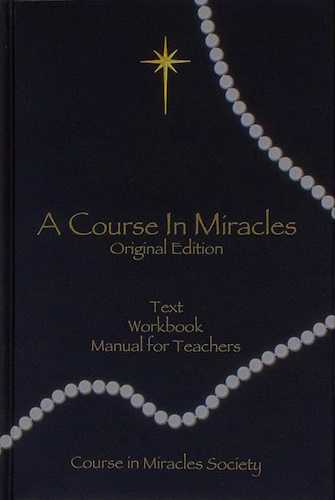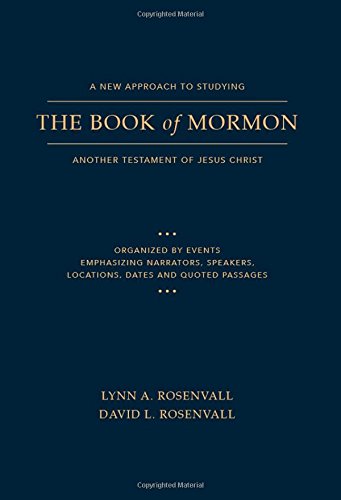
![]()
![]()
Book of Divinity
Chapter IV
1. GOD said: For the spirit of a Zarathustrian who hath completed his primary education, what then? On which all the members spake. After that Div decreed:
2. He shall serve two hundred years as an apprenticed loo'is. He shall become
p. 285
proficient in the knowledge of procreation of mortals. Learning to prophesy what the off-spring will be, according to the parentage; to become wise in discerning how the es of a living mortal governeth the flesh, to good or evil; how the es of a mortal controlleth the sex and ultimate size and health and strength of the offspring.
3. To learn which, the loo'is shall take him to thousands of mortals, and he shall make a record of what he hath under observation; and when such mortals have offspring born unto them, he shall make a record thereof; and he shall observe the character of the birth, and the foundation of the child, together with what conditions surrounded the mother of the child. And he shall follow that child till it hath grown up, and also married, and begotten a child, or children, and so on to the sixth generation. This is the twenty-eighth Divan law.
4. Div decreed: After he hath served two hundred years he shall be examined by his Lord, or his Lord's deputy, and if proficient in prophesying to the sixth generation, he shall be entered as an ashar on a list of four twelves for every moon's change. But the forty-eight ashars shall not be ashars to more than one hundred and ninety-two mortals, unless otherwise specially allotted by the Lord or God in dominion.
5. For four generations, of one hundred and thirty-three years, shall he serve as an ashar. And he shall learn to have dominion over his mortal proteges night and day, not suffering them, however, to know his presence. To accomplish which, he shall begin with his proteges in their first infancy; remaining with them whilst they sleep, talking to the spirit of the mortal, teaching and persuading. This was the twenty-ninth Divan law.
6. Div decreed: Having served as ashar, the full term of ashar, he shall be entitled to examination by his Lord or deputy. But herein beginneth a new examination; which is, that the examination pertaineth to his protoges, as to what kind of fruit he hath sent to heaven, the grade of his es'yans being the standard. This was the thirtieth Divan law.
7. Div decreed: Having passed the examination as ashar, he shall now be promoted as asaph, where he shall serve sixty-six years. Here again his examination shall be not of himself but of the harvest of his department. This was the thirty-first Divan law.
8. Div decreed: His examination being complete, he shall now receive emancipation for all preceding departments and decrees; and he shall have his choice in all places he hath passed, unless otherwise specially detailed by his Lord or God of his division. This was the thirty-second Divan law.
9. Div decreed: He shall now be entitled to enter the CHAPTER OF THE PRIMARY SOUL. His first lessons shall be in colors and sounds both of corpor and es. First, beginning with gray of not more than three combinations; and when he hath mastered these, he shall have four, then five, then ten, then a hundred, and so on, until, when any combination of colors is placed before him, he can instantly perceive every color, shade, tint, and the velocity of light, and its force (actinic) emanating. And he shall pursue this study until he can create in es the counterpart of anything in corpor, or create in corpor the counterpart of anything in es. And of sounds he shall proceed in the same way; first, learning a combination of three, so that when his teacher produceth any three sounds together, he can hear them and determine the exact velocity of wave. Then he shall begin with four sounds (notes), then five, then ten, then a hundred, and even a thousand, the which, even though made in the same instant, he shall detect every one, and the velocity and force of each. This was the thirty-third Divan law.
10. Div decreed: He shall now begin the practice of combining and creating color by sounds, and sounds by colors, both in corpor and es. His teachers shall make explosions with light, and explosions without light, and by his eye and ear only shall he be able to determine with what elements the explosions were made. This was the thirty-fourth Divan law.
11. Div decreed: He shall go far away from the explosions, and when the waves come to him, even though he heareth not the explosion, he shall be able to determine, by the waves, of what substance the explosion was made, and whether in light or darkness. And, if in light, what colors were manifested. This was the thirty-fifth Divan law.
12. Div decreed: He shall now receive instruction in the sounds of conversation. First, his teacher shall cause him to hear two people conversing at the same time, missing nothing that is said; then three, then four, then five, then ten, then a hundred, and then a thousand, but no greater number in this department. This was the thirty-sixth Divan law.
p. 286
13. Div decreed: He shall now analyze the waves of voice, wherein he cannot hear the sounds thereof. His teacher shall station him in a certain place and cause him to read the waves of light and sound that come to him, so that he knoweth not only the words spoken, but the kind of person speaking or singing. This was the thirty-seventh Divan law.
14. Div decreed: His teacher shall now cause him to read the waves of light and sound emanating from two persons talking at the same time, whom he cannot hear, and he shall understand not only the words spoken, but the kind of persons speaking. Then, he shall read the waves in the same way for three persons, then four, then eight, then a hundred, and even a thousand. This was the thirty-eighth Divan law.
15. Div decreed: Then he shall be taken to a distance from a battle-field, where mortals are in deadly conflict, but he shall not be sufficiently near to hear the sounds; but when the waves come to him, he shall read them and know the number of the men in battle, the kind of weapons in use, and the cause of contention. This was the thirty-ninth Divan law.
16. Div decreed: He shall now be promoted to be a messenger between Lords, and between Lords and Gods. This was the fortieth Divan law.
17. Div decreed: For one hundred years he shall serve as messenger, and at the end of that time his Lords and Gods shall render his record, and promote him to be marshal. And hereupon the emancipation of all the preceding decrees and departments shall be open to him, to choose whatsoever he will, save on such time and occasion as specially required by his Lord or God. This was the forty-first Divan law.
18. Div decreed: For two hundred years he shall serve as marshal, and under as many as forty Lords and Gods, and in as many as twenty heavenly kingdoms. This was the forty-second Divan law.
19. Div decreed: He shall now be promoted Lord, and have dominion over a city or nation of mortals, and over the spirits belonging to that city or nation. This was the forty-third Divan law.
-
Urantia Book, 44:0.11 - The Celestial Artisans
Never in your long ascendancy will you lose the power to recognize your associates of former existences. Always, as you ascend inward in the scale of life, will you retain the ability to recognize and fraternize with the fellow beings of your previous and lower levels of experience. Each new translation or resurrection will add one more group of spirit beings to your vision range without in the least depriving you of the ability to recognize your friends and fellows of former estates.
-
Princess Bride 1987 Wallace Shawn (Vizzini) and Mandy Patinkin (Inigo Montoya)
Vizzini: HE DIDN'T FALL? INCONCEIVABLE.
Inigo Montoya: You keep using that word. I do not think it means what you think it means. -
Urantia Book, 117:4.14 - The Finite God
And here is mystery: The more closely man approaches God through love, the greater the reality -- actuality -- of that man. The more man withdraws from God, the more nearly he approaches nonreality -- cessation of existence. When man consecrates his will to the doing of the Father's will, when man gives God all that he has, then does God make that man more than he is.
-
Urantia Book, 167:7.4 - The Talk About Angels
"And do you not remember that I said to you once before that, if you had your spiritual eyes anointed, you would then see the heavens opened and behold the angels of God ascending and descending? It is by the ministry of the angels that one world may be kept in touch with other worlds, for have I not repeatedly told you that I have other sheep not of this fold?"
-
Urantia Book, Foreword - 0:12.12 - The Trinities
But we know that there dwells within the human mind a fragment of God, and that there sojourns with the human soul the Spirit of Truth; and we further know that these spirit forces conspire to enable material man to grasp the reality of spiritual values and to comprehend the philosophy of universe meanings. But even more certainly we know that these spirits of the Divine Presence are able to assist man in the spiritual appropriation of all truth contributory to the enhancement of the ever-progressing reality of personal religious experience—God-consciousness.
-
Urantia Book, 1:4.3 - The Mystery Of God
When you are through down here, when your course has been run in temporary form on earth, when your trial trip in the flesh is finished, when the dust that composes the mortal tabernacle "returns to the earth whence it came"; then, it is revealed, the indwelling "Spirit shall return to God who gave it." There sojourns within each moral being of this planet a fragment of God, a part and parcel of divinity. It is not yet yours by right of possession, but it is designedly intended to be one with you if you survive the mortal existence.
-
Urantia Book, 1:4.1 - The Mystery Of God
And the greatest of all the unfathomable mysteries of God is the phenomenon of the divine indwelling of mortal minds. The manner in which the Universal Father sojourns with the creatures of time is the most profound of all universe mysteries; the divine presence in the mind of man is the mystery of mysteries.
-
Urantia Book, 1:4.6 - The Mystery Of God
To every spirit being and to every mortal creature in every sphere and on every world of the universe of universes, the Universal Father reveals all of his gracious and divine self that can be discerned or comprehended by such spirit beings and by such mortal creatures. God is no respecter of persons, either spiritual or material. The divine presence which any child of the universe enjoys at any given moment is limited only by the capacity of such a creature to receive and to discern the spirit actualities of the supermaterial world.
-
Urantia Book, 11:0.1 - The Eternal Isle Of Paradise
Paradise is the eternal center of the universe of universes and the abiding place of the Universal Father, the Eternal Son, the Infinite Spirit, and their divine co-ordinates and associates. This central Isle is the most gigantic organized body of cosmic reality in all the master universe. Paradise is a material sphere as well as a spiritual abode. All of the intelligent creation of the Universal Father is domiciled on material abodes; hence must the absolute controlling center also be material, literal. And again it should be reiterated that spirit things and spiritual beings are real.
-
Urantia Book, 50:6.4 - Planetary Culture
Culture presupposes quality of mind; culture cannot be enhanced unless mind is elevated. Superior intellect will seek a noble culture and find some way to attain such a goal. Inferior minds will spurn the highest culture even when presented to them ready-made.
-
Urantia Book, 54:1.6 - True And False Liberty
True liberty is the associate of genuine self-respect; false liberty is the consort of self-admiration. True liberty is the fruit of self-control; false liberty, the assumption of self-assertion. Self-control leads to altruistic service; self-admiration tends towards the exploitation of others for the selfish aggrandizement of such a mistaken individual as is willing to sacrifice righteous attainment for the sake of possessing unjust power over his fellow beings.
-
Urantia Book, 54:1.9 - True And False Liberty
How dare the self-willed creature encroach upon the rights of his fellows in the name of personal liberty when the Supreme Rulers of the universe stand back in merciful respect for these prerogatives of will and potentials of personality! No being, in the exercise of his supposed personal liberty, has a right to deprive any other being of those privileges of existence conferred by the Creators and duly respected by all their loyal associates, subordinates, and subjects.
-
Urantia Book, 54:1.8 - True And False Liberty
There is no error greater than that species of self-deception which leads intelligent beings to crave the exercise of power over other beings for the purpose of depriving these persons of their natural liberties. The golden rule of human fairness cries out against all such fraud, unfairness, selfishness, and unrighteousness.
